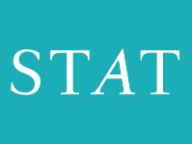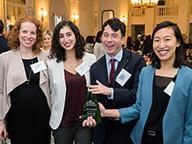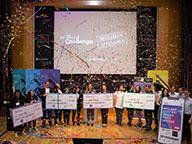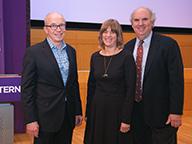Faculty News
—
Professor Arun Sundararajan is interviewed for a feature story on whether Airbnb has impacted New York City rents
—

Excerpt from Fast Company -- "'You’ll find that only a very small fraction of current Airbnb listings could potentially be units that have been taken off the market,' says Arun Sundararajan, professor at NYU’s Stern Business School and one of the researchers on the study. 'They’re not going to take over large swaths of long-term housing because there’s just not enough demand for that.'"
Faculty News
—

Excerpt from Fast Company -- "'You’ll find that only a very small fraction of current Airbnb listings could potentially be units that have been taken off the market,' says Arun Sundararajan, professor at NYU’s Stern Business School and one of the researchers on the study. 'They’re not going to take over large swaths of long-term housing because there’s just not enough demand for that.'"























